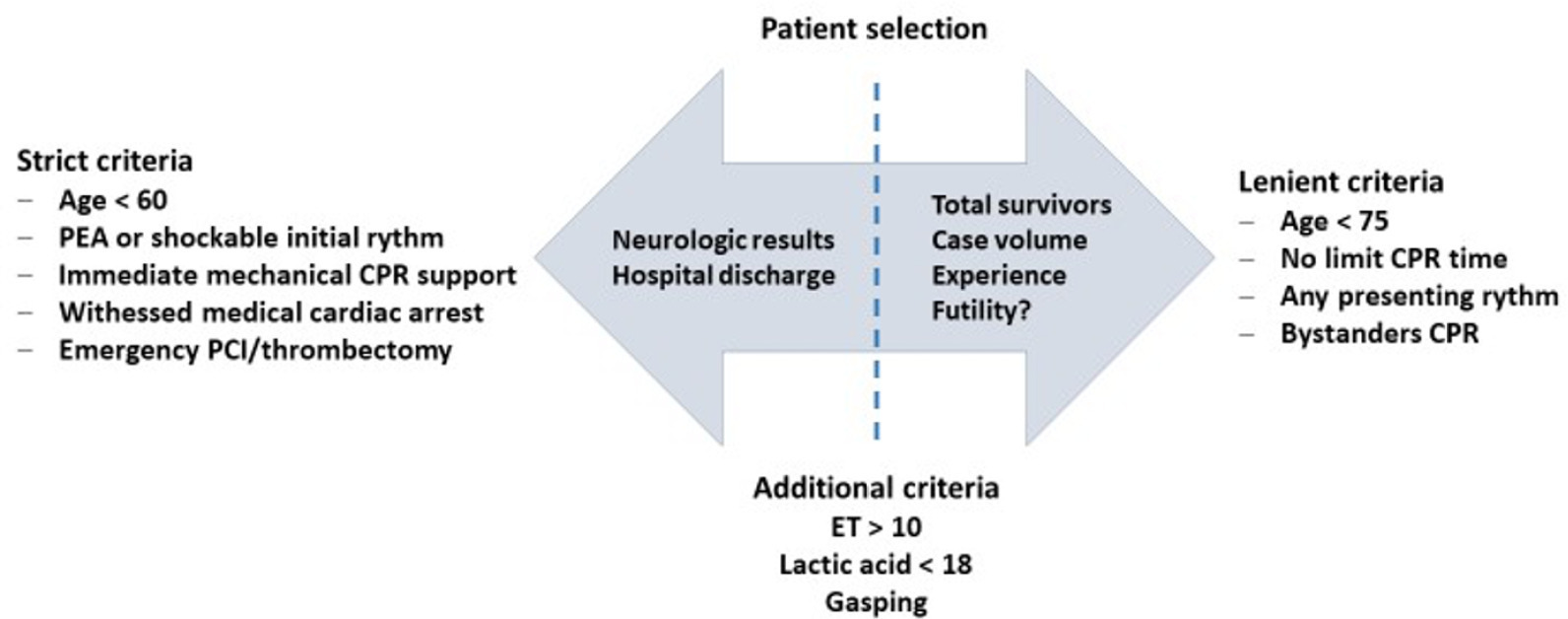
Cardiac arrest (CA) is a major health problem associated with serious personal and social consequences. In Spain, 50,000 CA cases are estimated to occur per year, half of which are expected to occur in health care facilities.() The shortand long-term prognoses of these patients are associated with the early initiation of basic and advanced life support (ALS). The use of extracorporeal cardiopulmonary resuscitation (eCPR) is an alternative in some circumstances,() and its results are also time dependent. The current indication for eCPR is refractory CA, defined by three unsuccessful defibrillation attempts or lasting more than 10 minutes.() It could be cost-effective method for witness in-hospital CA, and immediate initiation of ALS and extracorporeal support are reported to have survival rates between 20 and 30%,() which are closely related to low-flow time (time from CA to start of extracorporeal membrane oxygenation [ECMO] support). It has been proposed, that it is a highly complex technique, should be implemented in a center with high volume of cases and experience in the use of ECMO.() However, centers with experience in the implementation of primary coronary intervention programs and the application of other mechanical support devices have characteristics that make the use of eCPR attractive, especially considering their proportion of personnel trained in cannulation of large vessels, witnessed CA, high-quality cardiopulmonary resuscitation (CPR) attempts, young patients with few comorbidities and short low-flow times. We present the preliminary results of an eCPR program in the catheterization laboratory in witnessed in-hospital CA.
[…]
Search
Search in:


Comments